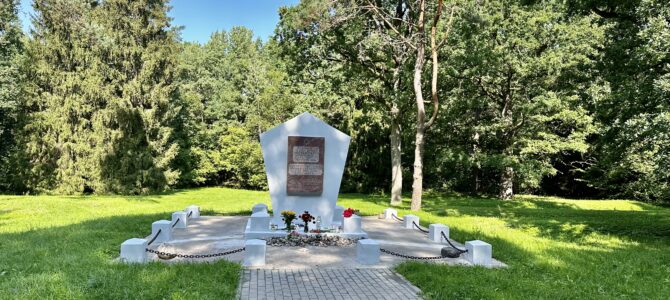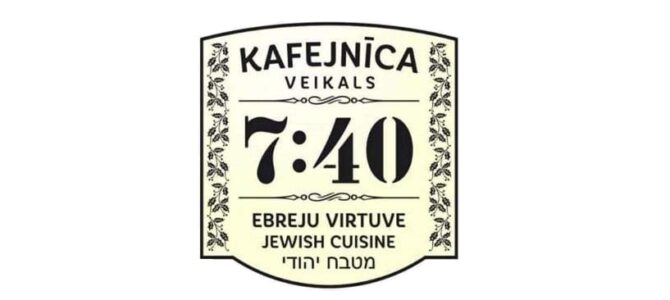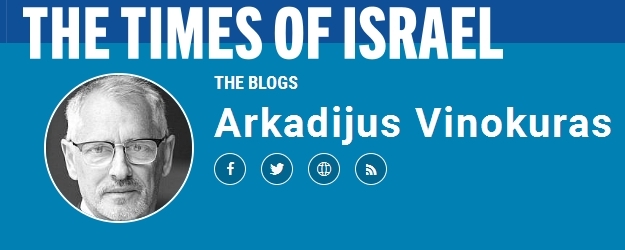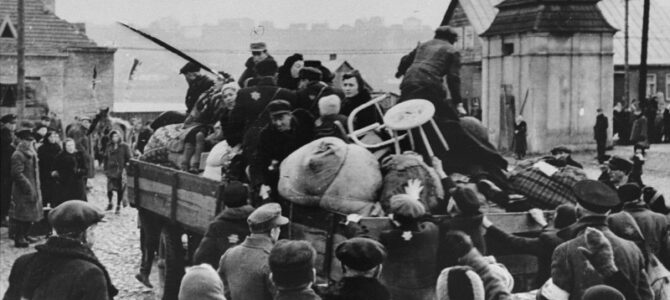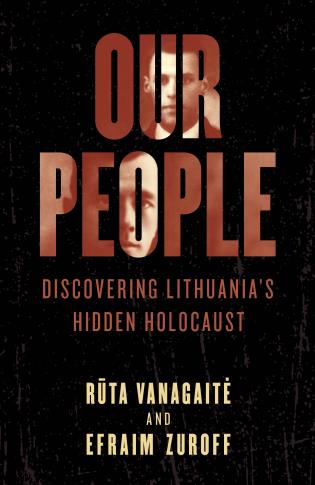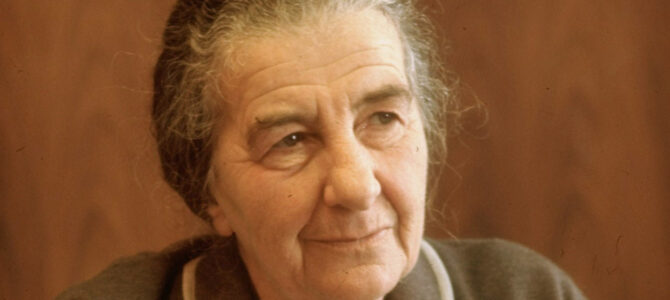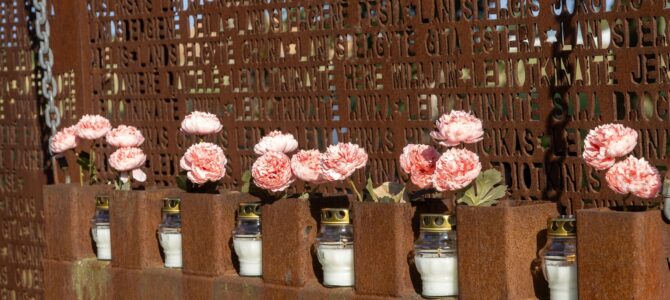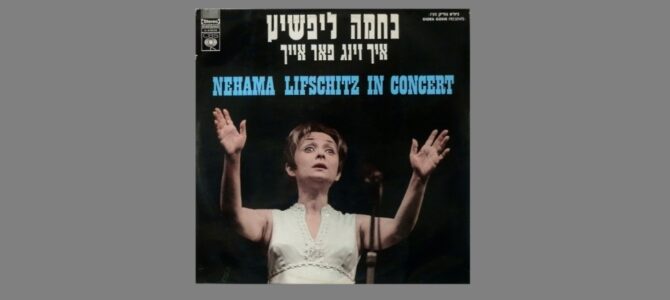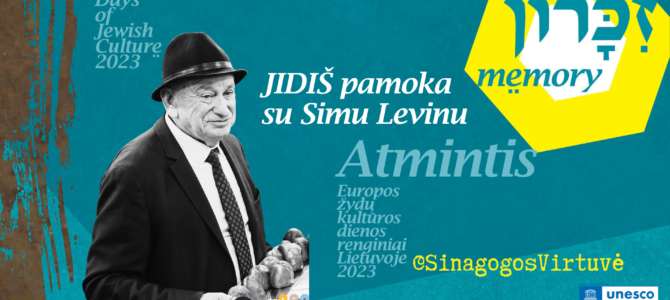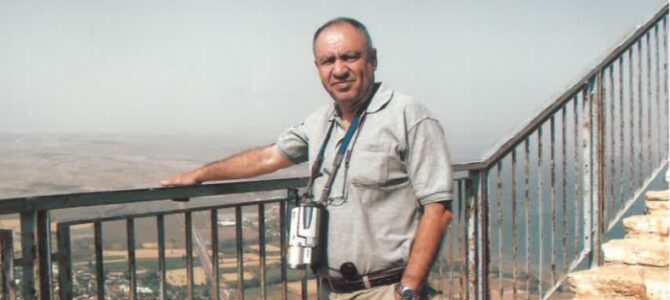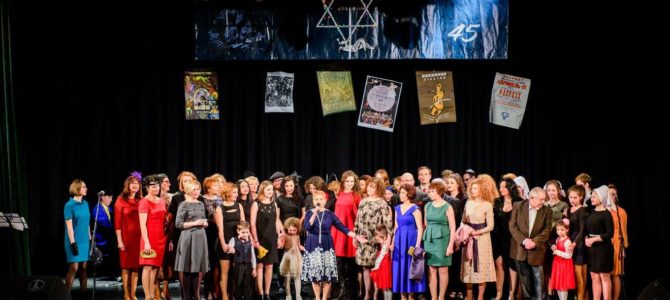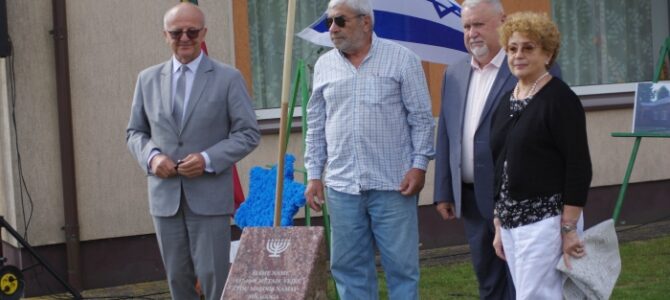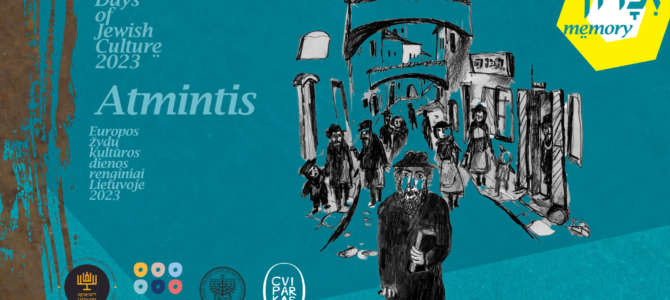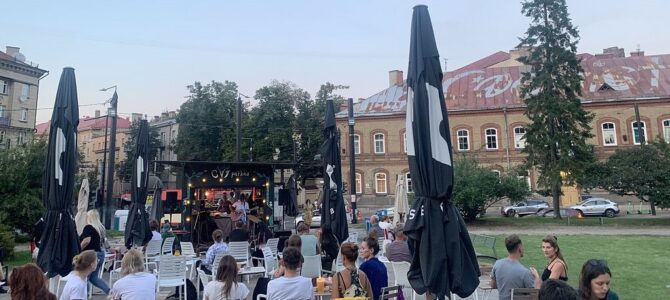The first Sunday in September is the traditional time to commemorate the Jewish victims murdered in the Holocaust in the Pivonija Forest outside Vilkomir (Ukmergė) and this year marked the 82nd anniversary of the mass murder. As usual, the commemoration began at 12 noon.
Members of the Ukmergė Jewish Community and fellow Jews from the Vilnius and Kaunas communities gathered at the mass murder site for the ceremony.
Also attending the ceremony were Israeli ambassador to Lithuania Hadas Wittenberg Silverstein, American embassy chargé d’affaires Tamir Wasser, UK ambassador Brian Olley, Lithuanian Jewish Community chairwoman Faina Kukliansky, Kaunas Jewish Community chairman Gercas Žakas, Ukmergė regional administration mayor Darius Varnas and others.
Ukmergė Jewish Community chairman Artūras Taicas initiated the ceremony, saying: “Every year we remember this tragedy, we gather here not only to honor the dead, but also in order to ensure this tragedy never happens again, and with the aim of telling the truth about the tragic events of 1941.”


